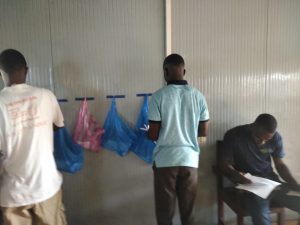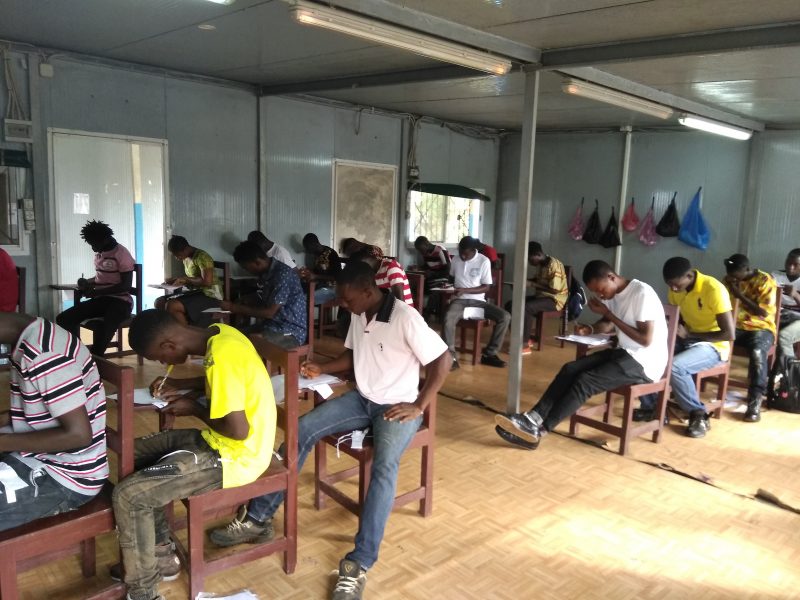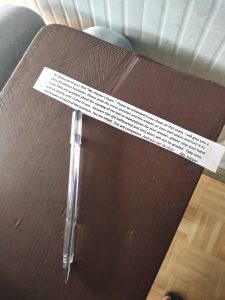I have four classes of Post-Secondary Professional Program students. They are taking Leadership I and Entrepreneurship I. My students fall in the age range of those affected by the 14 years of civil war and little to no education. My students were fortunate to receive a disjointed education and low quality secondary education while growing up. In the U.S. we would call them non-traditional students, but here I like to call them lucky ones. They get to pursue education later in life when most others remain uneducated and the most unlucky, illiterate.
The effects of the civil war run deep in this society. The most obvious result I see is corruption and unfortunately the education system is not immune. The education system is plagued with bribes (monetary or physical) that compromise learning. Grade school teachers that can barely read themselves are tasked with teaching the next generation how to read. It can take most elementary school teachers 30 minutes to read a first grade level book. Like everywhere else in the world, money can buy you almost anything here-your freedom, your education, your way out of crime. There are almost no consequences for wrong doing, you just pay a little something and all wrong is forgotten.
The effects of bribery in the education system are obvious and blatant to the outsider. Due to the lack of accountability in the education system or true assessment of learning there are students who advance in grade level, yet not in the development of the mind. So, take that a step further, once they get to me in high school or Post-Secondary Professional School, they’ve already “passed” so many grades without learning the content that what I can do has limitations. I have many students that really struggle to read a first-grade sentence or calculate 4+5.
Until the past year, I never realized the far-reaching effects of illiteracy and innumeracy. Being able to read and write affords us the ability to learn for ourselves. Reading allows for new breadth and depth of knowledge, for one to make new associations, and create. Reading is an active mental process improving concentration, focus, and memory. It provides a foundation of structure and reasoning skills. Most of all it allows us to process our thoughts/emotions and communicate them with others. What an immeasurable gift! Literacy is the foundation for critical thinking. A good education gives you structure and the first experience of learning that my actions or lack thereof have consequences. What is worse is how long lasting the effects are because we are educating the next generation. So, a crippled education system cripples the employees and the workforce. At first the cheating disgusted me from an integrity and fairness standpoint. Now it just breaks my heart because I realize that this attitude that has plagued them for their entire lives will affect their minds forever unless change happens.
Unfortunately, this mindset and environment has set dangerous expectations for students. Tests are normally taken with the impression, “I can cheat off my neighbor” or “I can buy the grade from my teacher.” That works, until you have Ms. Harper. I don’t take bribes and I certainly won’t tolerate cheating.
As a teacher with students that have such a rich story, I had to be very intentional about the time I spent at the white board. So, I start each class with a critical thinking exercise. Due to the bribery society, I firmly believe in enforcing consequences. I have had to learn the hard way, I cannot do much for the rest of the country, but I control what happens in my classroom. My stand against corruption starts here. My opinion is that if students don’t learn to value honesty and integrity, they will never be the next leaders that this country needs.
For all of these reasons, I have told my post-secondary school students that it will be impossible to cheat on my exams. This claim was always met with mocking laughs and so from the first day of class until midterms, I pondered how I could make it so.
I recently gave my leadership class their first exam. I started with a speech about the importance of integrity. I went on to say, “I expect honesty, because I have never been anything but honest with you.” Then gave them this slip of paper with the directions.
Instead of variations of the test, to deter cheating. I wrote up many test essay questions on topics and cut them up on strips of paper. Each topic went into a different bag. Then, I hung the bags and each student selected a single question from each bag.
 It was literally impossible to cheat off their neighbor, because he/she drew a different question. Students did not even try to look and see what question the others pulled, they just focused on what was in front of them.
It was literally impossible to cheat off their neighbor, because he/she drew a different question. Students did not even try to look and see what question the others pulled, they just focused on what was in front of them.
I could not help but stand at the front of the room with a smirk of a word well kept. As satisfying as that was, it was nothing compared to the pride I felt from each of them as I saw them diligently working on their exams. I have never seen a classroom so silent and focused on their exam and their answers. Usually testing is loud, order less, and chaotic. This sight is so uncommon here it’s like we transported to a different world.
In a place where there is little to no consequences or justice for wrong, I find that the greatest thing I can do to help  my students (far greater than just giving them more technical information in leadership or agriculture) is setting for them high expectations and accompanying consequences. Right and wrong can become the most bland, luke-warm grey you have ever seen if we let it. However, in my 4 walls for 4 straight hours on Monday, Wednesday, and Friday, there is structure and order. They know that the consequences of coming late is -10 points to start the day. They know that the outcome of participating twice (whether it be asking question or answering a question) is +20. They know that if they are still talking after my silence spin (I put my arm out and spin in a circle. When I face forward again the room should be silent.) they will have 10 points deducted. Because there are expectations and consequences in my classroom, there is responsibility. There is genuine learning. Most of all, there is empowerment.
my students (far greater than just giving them more technical information in leadership or agriculture) is setting for them high expectations and accompanying consequences. Right and wrong can become the most bland, luke-warm grey you have ever seen if we let it. However, in my 4 walls for 4 straight hours on Monday, Wednesday, and Friday, there is structure and order. They know that the consequences of coming late is -10 points to start the day. They know that the outcome of participating twice (whether it be asking question or answering a question) is +20. They know that if they are still talking after my silence spin (I put my arm out and spin in a circle. When I face forward again the room should be silent.) they will have 10 points deducted. Because there are expectations and consequences in my classroom, there is responsibility. There is genuine learning. Most of all, there is empowerment.
When students move away from corruption in school and are empowered to succeed without it, they will carry these same ideologies into the future and into their homes and businesses. I confidently trust leadership and entrepreneurship will help transform this post-conflict economy from aid reliant to Liberian owned. I believe that my students, the ones with integrity, communication skills, and problem-solving ability, will be at the forefront of government, industry, and communities in making it so.
Megan Harper is an Agricultural Economics graduate from the University of Kentucky. Before becoming an AgriCorps Fellow Megan was a Kentucky State FFA Officer.



